How Construction Technology Could Solve The Climate Emergency
Contact us to Add Your Business
How construction, with the help of cutting-edge digital twin technology, could play a key role in solving the climate emergency. Learn more about digital twin technology –
Digital twin technology for buildings is available and in use on real projects right now. Find out more about how IES' digital twin technology is being used to achieve zero carbon targets and to help fight the climate emergency –
For more by The B1M subscribe now:
Read the full story on this video, including images and useful links, here:
Narrated by Fred Mills. Additional footage courtesy of IES.
View this video and more at –
Follow us on Twitter –
Like us on Facebook –
Follow us on LinkedIn –
Follow us on Instagram –
#construction #architecture #climate
We welcome you sharing our content to inspire others, but please be nice and play by our rules:
Our content may only be embedded onto third party websites by arrangement. We have established partnerships with domains to share our content and help it reach a wider audience. If you are interested in partnering with us please contact Enquiries@TheB1M.com.
Ripping and/or editing this video is illegal and will result in legal action.
© 2019 The B1M Limited



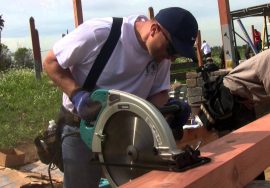

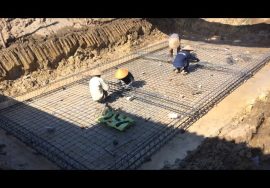

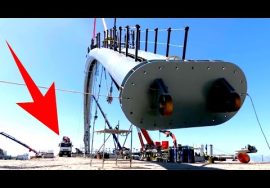
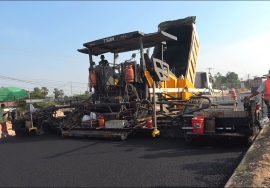
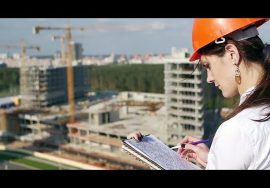

In my opinion The B1M is now in the ranks of YouTube channels that have achieved cult status due to being educational and entertaining!!
@alex3261 what is really sad is that I could not see any real solutions between all the “THE CLIMATE” fluff, if they had just pointed out their improvement techniques it would have given far more access to this info, but I suspect they don’t really have any, since all I could see is “we can use AI to tell us how to do our job better” which we see how AI algorithms telling people what to do worked out on youtube with elsagate LOL
Yes
And straight to the point. No unnecessary blabbering.
wow ok
Misa M if you dispute facts proven by decades of research and evidence your not just having a different opinion, that would be saying “yes I see that this is a problem but I don’t think we should solve it like this”. Refusing to believe hard scientific evidence is not an opinion.
Does this Channel ever make a boring video? I like everything it throws at me Lol.
I never asked to see this piss .Dropping atom bombs didn’t do no favors.
@The B1M I’ll go as far as back up Danny Le on doing an April Fools video, but I’d want it to be a total mystery and would rather you do your own thing for it, whatever it may be.
The B1M
April fools idea: Make a top 10 best pet rocks and go into the science and engineering behind them and act it’s highly complex.
Haha, you’re welcome! Thanks so much for the great feedback ?
Recycled materials are important, too, to save energy in manufacturing. When your own house needs renovation recycling materials uses less resources and extends the building’s life. You could also discuss the concrete alternative ingredients work going on now, like not using sand.
@Foginxtor ‘murica
I use lots of particle board to build majority of my furnitures. That should be a start.
It’s a lot more complex than that if you can use existing waste material that’s already on site you remove the need of transporting that material both to and from site. It also stops it from going to landfills. That’s just one of many ways to reduce a footprint but by looking at the wider process and finding ways to remove unnecessary and wasteful elements is key.
@Foginxtor Yes you’re right about that but I meant for example using timber from demolished buildings (I built my house that way) and reusing materials still ok to build secondary buildings like sheds, for example metal roofing, timber. Concrete is harder to recycle but can be used in foundations and for private roadways or walls. Done on a larger scale it is more versatile but yes could require energy to break up, whereas the materials mentioned above only need some muscle power and small hand or power tools.
@Foginxtor There are old and new concepts of clean recycling and reuse factories for waste
Boy, how far this channel has come since I first joined it
ntu student here~
1:27
Cities Skylines Nydal anyone?
From Strictoaster
OH SHHHIIII?!!
LOL
The amount of Italian names in this video pleases me.
Italians/Greeks/Spaniards capable of using their inner cheapness productively are the most formidable workers on the planet.
Damn… Watching this video from NTU feels a bit surreal
@Roy Costa NTU is nanyang technical university. I would love to study there or NUS but it is so expensive for Dutch students lucky you.?
@The B1M It’s cool! The Hive was designed to maximize passive cooling so even in tropical Singapore, even the un-airconditioned places are significantly cooler than the surroundings. Lots of buildings also have solar panels at the top!
That’s so cool!! What’s it like there?
What if we tapped the excess steam of central heating systems, built turbines at water substations, and used small modular nuclear reactors instead of fossil fuel generators to deal with spikes in demand for electricity.
1:14 I appreciate it. But it’s not the planet we are saving, it’s ourselves. The Planet can take care of itself.
@AKUJIRULE actually even more possibly concerning for those worried here, we will probably not only survive but spread by launching off world and de-evolving from what ever elitist thinking we might have achieved by learning so much about tech, as the Egyptians apparently did, by building pyramids for various reasons, using geopolymers and then de-evolving tech wise to the point they had to resort to stealing stones they made to build things and the re-purposing the pyramids for less tech related purposes each few generations as they forget what itt was even for most likely LOL.
@Obvioustroller bull. With all these bunkers in the world, humans survive.
@Nug U Mass extinctions have happened before, life will recover, we wont.
The biosphere is a part of the planet. We’ve already wiped out half of all species on this planet and we can never get them back.
Not gonna lie I have spent some amount of time binging this channel.
It’s certainly WAY better than going over to another network and letting them suck the IQ points out of your brain by watching The Kardashians.
I mean can’t you just get the data from the power company? What’s s so revoutionary?
this is now much more accurate, in real time and specific. Also this is a huge step towards a living, breathing, smart city
It would be interesting to see a video on nuclear power generation and how its benefits could affect our development in the future!
You better be talking about fusion
Although the production of the video is good, the content of the video just makes it feel like one big paid advert for a company. Especially when they use specific terms which may or may not be marketing terms. It would be a lot better to present the ideas without the brand recognition or a multitude of different solutions as to not favour one. It seems like a couple of videos have been like this. Other than that, it was a great video 🙂
This has the same quality as the informative tv broadcasts produced by the Deutsche Welle.
Your channel has improved tons over the years! I’m glad to be a viewer.
Wow! Thanks so much for such great feedback. We’ve invested a lot behind the scenes ?
Nottingham represent
We should focus on this first. Then energy.
❤ from The Philippines ??????????
Fixing Climate Change involves changing a lot of the things us humans do. Every part of society has to research what they can do, to fix the issues, they are causing.
I love the things mentioned here, that Construction can fix. If we do not work on that, things will get worse real fast.
@K MA they don’t. These idiots believe that if Westerners all used paper straws and had solar panels then problem solved. They are blind to unsustainable population growth (mainly non-white), deforestation, third world industrial development using fossil fuels and ocean acidification thanks to globalism.
That’s why we’re planting 20million trees
Does anyone pushing this stuff ever do math? Does anyone who makes this argument ever actually sit down and try and figure out exactly what the impact of their intervention is going to be and compare that to the cost of their intervention? Or is it always “we have to do _something_ or we’re all going to _die_ !”? If you do this, how much are you going to lower the global average surface temperature and over what timescale?
Too little too late??
Plastic choking our waters, carbon emissions heating our ?. Will we be able to do enough?
@The B1M it’s not going to be enough. Building using recycled materials is a nice idea but ultimately its totally insignificant.
Yes, but we need to act now